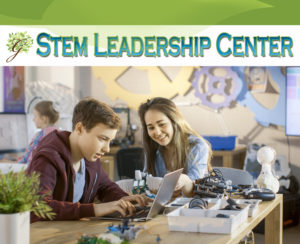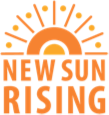It has long been established that the amount of education you have is a key predictor of how much you make and how long you live. Recent studies also demonstrate a correlation between a parent’s income and education level and the development of certain areas of their child’s brain that relate to learning, memory and stress processing. Education builds resilience and even reduces dementia in later life.
Yet traditional educational methods are crumbling. Thomas Friedman shouted an alarm that some of the skills currently taught in school (memorization, test taking, and routine tasks) fail to prepare students for a global, flat and crowded world. Sir Ken Robinson brilliantly satirized current educational systems as manufacturing plants making a product that is no longer needed. Sugata Mitra produced frightening and exciting results. He demonstrated that Indian children living in rural poverty could self-teach themselves at the same pace as children in an elite British private school in the complicated subject of neurobiology with simply access to a database of articles and the internet. His conclusion is even more radical – education as we know it is obsolete.
I won’t go that far. As a college professor and someone with a doctorate, I believe there will continue to be a place in the world for university scholars who push the outer limits of human knowledge and a traditional academic path to proceed to those limits. But I see other levels of education developing: those who can bridge the span between the disciplines and synthesize research from the outer edges of two different disciplines, those who can use digital tools to translate the information into digital form and mathematically render the systems of relationships. those who can artistically communicate the findings of the outer edges to those who do not speak the scholarly language of that discipline, those who can engineer innovation by applying new knowledge gained, and, if we listen to Juan Enriquez, those who can take the systematic perspectives of human knowledge and apply it with wisdom to the genetic invention of new life.
David Brooks, in his recent book Social Animal, writes that parents from the middle class spend 60% of disposable income on education. I am not going to address in this blog his alarming statistics that point to ever growing divide between those with wealth and those without in our country. Decades ago, college-graduate parents and high-school-graduate parents invested similarly in their children. Recently, more affluent parents have invested much more in their children’s futures while less affluent parents have not. Brooks mentions in his July 2012 New York Times op-ed, “Over the last 40 years upper-income parents have increased the amount they spend on their kids’ enrichment activities, like tutoring and extra curriculars, by $5,300 a year. The financially stressed lower classes have only been able to increase their investment by $480, adjusted for inflation. “
But what types of education learning experiences are we asking parents to pay for? 21st Century Parenting lays out a map to help parents invest that money wisely (and advocate for the type of programs schools need to adopt) to prepare our children for an increasingly complex world that will demand high levels of education for any type of involvement. We are looking for programs that help our children and teens become competent in skills of innovation, critical thinking, collaboration, emotional intelligence, resilience, leadership and vision. While educational opportunities multiply, a new layer of academic credentials is emerging. New systems, systems that complement but don’t replace the traditional degree categories, are forming to demonstrate the skills our children, teens and young adults are mastering. There is a growing awareness of the need to recognize the types of student achievements that don’t fall into formal assessment categories.
Mozilla has introduced a new online standard to recognize and verify learning; Open Badges. Mozilla Open Badge allows organizations and communities to issue badges backed by their own seal of approval. Learners/users can then collect badges from different sources and share them across the web, unlocking new career and learning opportunities.
I earned my first badge – Badges 101 – in my efforts to write this blog.
I can display my badge in Twitter, Google + or Facebook or embed my collection directly in my website. When you click on the badge, you access its metadata that tells the person inquiring into my credentials where I earned the badge, who issued it, and a link to the criteria.
Microsoft, NASA and Disney already use Mozilla’s Open Badges system to recognize employees’ skills and achievements. I will be partnering with the Computer Science Student Network to assist students in earning some of the CS2N badges in
- Storytelling and Animation
- Web Development
- ROBOTC for LEGO
- ROBOTC for VEX
- ROBOTC Virtual Worlds
- NXT-G to LabVIEW
If you are local, 3rd, 4th and 5th grade campers are invited to join me for the Summer Camp @ Baden Academy: Week 3 on July 22-26 and potentially earn three CS2N badges: Alice Competitor (Demonstrated solid storytelling and programming skills using Alice), Stellar Storyteller (Demonstrated an ability to tell a story based on Common Core Standards for writing a narrative: developing real or imagined experiences or events using effective technique and well-structured event sequences), and Code Artist (Demonstrated programming skills including appropriate use of commenting and logical use of procedures). Of course, the kids only know they are using a cool storytelling animation program to create a fictional nature documentary of an outrageous animal from their imaginations!
If you are not local, or have a child who can’t come that week, consider enrolling your child (and their friends!) in the Inaugural Grow a Gen Labs in Your Home.
Nature Doc-U-Mentary with Scratch Programming
August 18-23 10 AM each morning at your home computer.
Join Dr. Ellen each morning at 10 am in a Google Hangout for an hour of training and feedback as your home lab works to complete an entry for the CS2N Scratch programming challenge to create a creature and make a Nature Documentary. Will your creature be cute or ferocious? Will you prepare a documentary on your own, or invite a team of friends to work with you? Students will have the opportunity to earn the Computer Science Student Network Badge “Scratch Competitor.”
I can see tremendous possibilities for the badges. As the director of the Media Lab, I can set up a badge system that allows students access to equipment and privileges in the lab. I can see Beaver Falls Library, in their initiation of a HOMAGO Lab, issuing badges for access to robotic and computer equipment. As Grow a Generation grows and evolves, we may issue our own badges. How can you see the Mozilla Open Badges being used?




